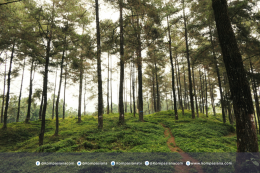Still, innovation alone cannot overcome corruption, weak law enforcement, and short-term political interests. Technology gives us tools, but courage and governance give them teeth. Indonesia's recent decision to extend its moratorium on new forest clearing for palm oil concessions is a step forward, but enforcement remains inconsistent (Greenpeace, 2021). Without political resolve, drones become toys, satellites become screensavers, and AI becomes wasted code.
The ethical dimension is unavoidable. Coexistence requires rejecting the illusion that human progress must come at wildlife's expense. The truth is the opposite. The survival of these species is tied to ours. Orangutans are "gardeners of the forest," dispersing seeds that maintain the rainforest's carbon sink, without them, climate collapse accelerates (Santika et al., 2022). Elephants maintain open clearings that sustain biodiversity, while tiger populations indicate ecosystem health. Protecting them is not sentiment; it is self-preservation.
What, then, are the creative solutions that must define the next decade?
First, invest in ecological corridors to reconnect fragmented habitats. The survival of wide-ranging species such as orangutans and tigers depends not only on the quantity of remaining forest, but also on the quality of its connectivity. When forests are cut into isolated patches, animals become trapped in genetic islands, leading to inbreeding, reduced adaptability, and eventual population collapse. In Central Kalimantan, pilot projects linking peatland reserves have already shown an increase in orangutan dispersal, while in Sumatra, simulated corridor models predict a 30% increase in tiger movement across reserves once linkages are restored (Wibisono et al., 2023).
Second, integrate coexistence into education. Conservation is not won in conference halls alone, it is seeded in classrooms. Children who grow up understanding that elephants shape ecosystems or that orangutans plant forests are more likely to see them not as pests or curiosities, but as partners in human survival. Embedding coexistence in school curricula through storytelling, local field trips, digital conservation games, and even VR experiences which bridges emotional empathy with scientific literacy. In Indonesia, where many schools sit within reach of remaining wildlife habitats, this is not abstract, it is urgent!
Third, reimagine conservation funding through conservation finance bonds. Traditional conservation models rely heavily on donor fatigue and inconsistent government budgets. Conservation finance bonds invert this by creating a performance-based investment tool. Investors buy into bonds where returns are tied to measurable ecological outcomes, such as verified increases in elephant populations or hectares of forest legally secured. This transforms conservation from a charity to an asset class, aligning financial incentive with ecological integrity.
Fourth, mainstream indigenous knowledge. Indigenous communities have lived alongside wildlife for centuries, guided by traditions that perceive animals not as intruders but as kin. In parts of Aceh and Kalimantan, folklore portrays elephants as guardians of rivers, and taboos prohibit killing them. These cultural codes, though dismissed as "unscientific" in modern policy, often embed ecological wisdom that sustains balance. Incorporating indigenous governance into formal conservation frameworks not only strengthens legitimacy but also empowers communities whose identities are entwined with landscapes.
Finally, build a culture of accountability. Technology, education, and finance mean little without the scaffolding of governance. Corporations must be held to their zero-deforestation pledges, not through glossy CSR reports but through transparent, third-party verified supply chains. Governments must demonstrate consistency. Policies cannot oscillate between conservation and concession. Consumers, too, are not passive. Every purchase is a vote for either destruction or preservation. Certified products, whether palm oil, coffee, or timber, become ballots cast in the marketplace. Accountability must not only be systemic, but it must also be personal!
This struggle is not about nostalgia for wild beauty. It is about redefining what it means to be human in the Anthropocene. To live without orangutans, elephants, or tigers is to live in a diminished world, stripped of wonder, stripped of balance. The extinction of these species would not be the loss of "them"; it would be the loss of "us."
On this World Animal Day, we must dare to say aloud: innovation without justice is hollow, action without community is brittle, and coexistence without courage is a lie.
To speak for the species is not to whisper. It is to roar louder than chainsaws, louder than gunshots, louder than greed!







